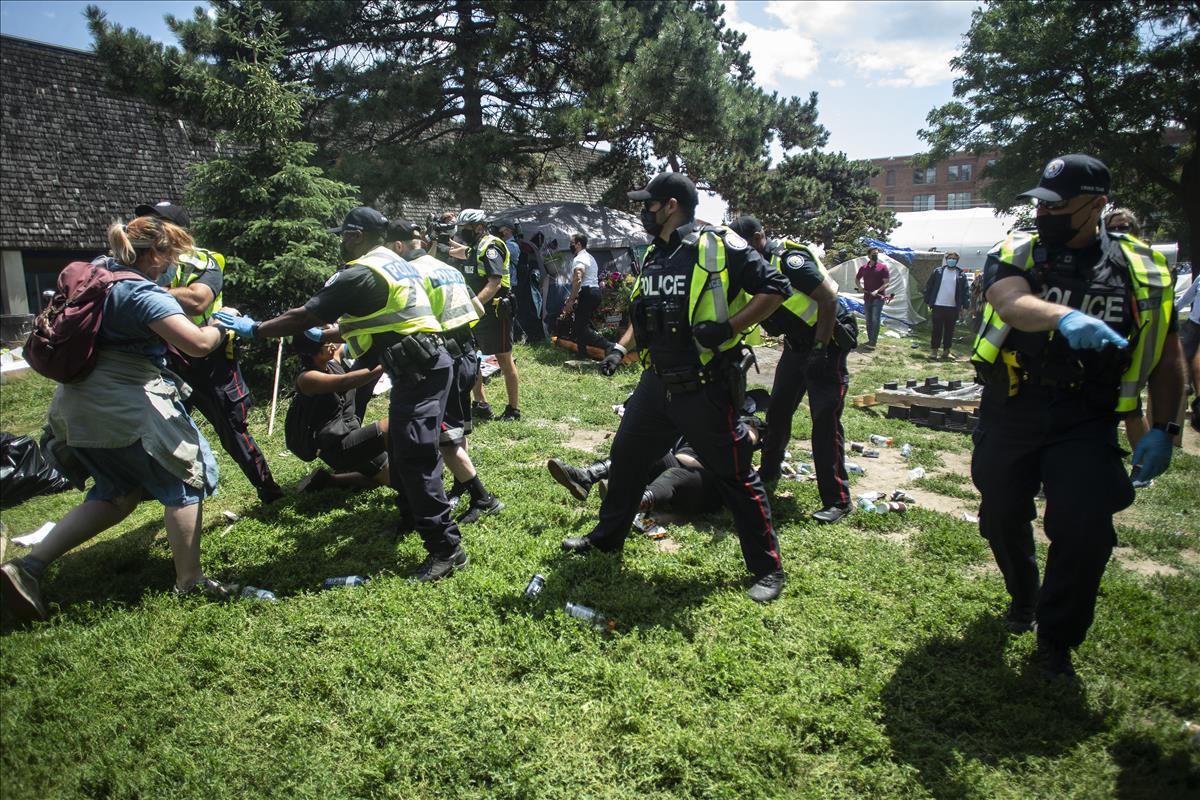
Who Is 'The Public?' The Answer Shapes How We Address Homelessness
Housing affordability and homelessness are hot topics in municipal politics these days. But ironically, unhoused citizens are left out of the civic debate that most impacts their lives.
As Ontario approaches municipal elections in October, our concept of“the public” is needed to remind us of our commitment not only to the but to one another.
Toronto City Council has engaged in several heated debates this year , in the city. The same is true in many Canadian cities.
What comes up, again and again, are comments about“citizens” or“residents” of our cities. Much of the time, councillors, media pundits and journalists use these words to refer to people with adequate housing. Emergency shelter-hotels were unfair to Encampments disrupt the lives of
In a speech given during one of these debates in April 2022, Toronto Coun. Shelley Carroll asked the question:“Who is the public?”
Carroll asks 'who is the public?' in a Toronto City Council meeting aired on the council's YouTube channel. Seats at the public table
The public is a term used to describe citizens who play a role in democratic life. based on the Athenian model of civic life and public debate.
What was crucial for Arendt — and ancient Greece — was that citizens had their most basic needs met so that they could devote time and energy to help construct a functioning society.
Arendt likened the public realm to a table, a structure shared by everyone sitting around it. All are separated and distinct entities around the table and sit in different places, but all are at that table.
At the same time, all citizens must have places to retreat to, referred to as the“private realm” by Arendt.
I study forms of public engagement and education amid our systemic failure to house people. In doing so, I have come to realize that failures in housing are intertwined with a loss of publicness.
For years now, scholars have identified as a result and a depletion of the all of us hold in common. It would seem that Arendt's table is deteriorating.
An encampment supporter waits for Toronto police to clear Lamport Stadium Park homeless encampment in Toronto in July 2021. THE CANADIAN PRESS/Chris Young Civic engagement eroded
In Ontario, critics have in which as we approach the province's municipal elections.
Those without housing are in a double bind. Not only does a lack of basic necessities preclude the freedom to engage in meaningful civic debate, but those without housing by the contemporary political landscape. The non-citizen is judged incapable of a meaningful contribution — bound for, as
The lands us squarely in the midst of this paradox.
Dehousing refers to broad policy changes that emerged in the 1980s and '90s. . In comparison, the 1970s saw the construction of roughly 20,000 units annually. .
This means these vital responsibilities were transferred to provinces like Ontario, where, .
Unsurprisingly, when you stop building social housing and you gut the welfare system, you create an .
In a democracy, all people deserve the right to have private places from which to enter the public realm as citizens. Furthermore, if the unhoused are not recognized as residents or citizens, then .
All people deserve the right to have private places from which to enter the public realm as citizens
According to Carroll:
The media's roleThis redefining of“the public” is a helpful step toward listening to those who have experienced homelessness.
In order to conceive of unhoused citizens as members of the public, .
In addition, instead of highlighting the“nuisance” of individual homeless citizens, the media should generate awareness of the that continue to perpetuate homelessness. The problems are rooted in , not individuals.
And all citizens should pay attention by those who live closest to these realities.
In Ontario's municipal election and in all elections, Canadians should consider whether for government officials who seek to restore legitimate and adequate places of refuge for all citizens who make up our vibrant and complex public.

Legal Disclaimer:
MENAFN provides the
information “as is” without warranty of any kind. We do not accept
any responsibility or liability for the accuracy, content, images,
videos, licenses, completeness, legality, or reliability of the information
contained in this article. If you have any complaints or copyright
issues related to this article, kindly contact the provider above.


















Comments
No comment